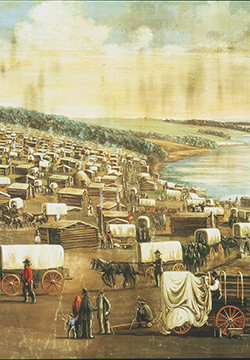August 21, 1843
Joseph Smith received a letter written by Mr. J. Hall of Independence, Missouri, "breathing hard things against us as a people," which he forwarded along with some additional remarks to Illinois Governor Thomas Ford.

Read peer-reviewed articles about Joseph Smith and other Church history topics from BYU Studies. Visit byustudies.byu.edu.